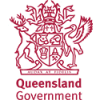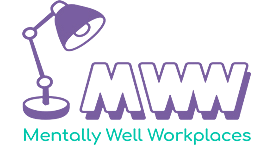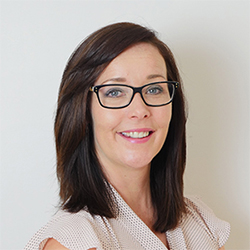When we talk about mental ill-health, the language we use plays a significant role in perpetuating, or preventing, stigma, stereotypes and myths. It’s all too common to hear words like ‘psycho’, ‘schizo’ or ‘crazy’ used to describe people living with a mental illness. Terms like ‘OCD’ are used as shorthand slang to describe someone who is particularly organised or tidy, and we may hear phrases like ‘you’re so bipolar’ thrown around in jest. When talking about treatment options, too, colloquialisms like ‘shrink’ or ‘happy pills’ often replace accurate terminology, making mental health treatment a source of shame.
The misuse of mental health terms, even when done unintentionally, contributes to misunderstandings around mental ill-health and can be incredibly harmful to those with lived experiences of mental illness. When we consider that around 1 in 5 Australians will experience a mental illness in any given year, that’s a significant number of people who can be impacted by the language we use on a daily basis.
Impacts of using inaccurate language
Using inaccurate language when it comes to mental ill-health can act as a barrier to help-seeking by stigmatising treatment options or projecting the idea that mental illnesses are somehow shameful. This includes any terminology that sensationalises mental illness, defines a person by their mental illness or reinforces stigma. When we use terms like ‘OCD’ or ‘schizophrenic’ improperly, we can also risk trivialising these mental illnesses and perpetuating false stereotypes.
In a workplace, we may hear misinformation or stigmatising language used in day-to-day conversations between colleagues. A person who overhears these comments can feel ashamed, upset and may be discouraged from speaking to employers and others about their mental health. Because inaccurate language is so pervasive, people may also see it as a sign that discrimination is acceptable.
Words or phrases to avoid when speaking about suicide or mental illness
- Language that reinforces stereotypes or misconceptions, or anything that encourages discrimination or prejudice against people with mental illness.
- Anything that suggests mental illnesses are all the same.
- Anything that makes an assumption about a person with a mental illness.
- Comments that suggest people with a mental illness are more violent or dangerous, or anything that links mental illness with creativity.
- Language that labels or defines a person by their diagnosis, or suggests that people with a mental illness are ‘victims’ or are ‘suffering’.
It can be difficult to know exactly which words and phrases we should avoid when discussing mental ill-health. Mindframe is a national program developed to supportthe safe reporting, portrayal and communication of mental ill-health and suicide. They have presented the following model to help organisations and individuals avoid using stigmatising terminology and language:
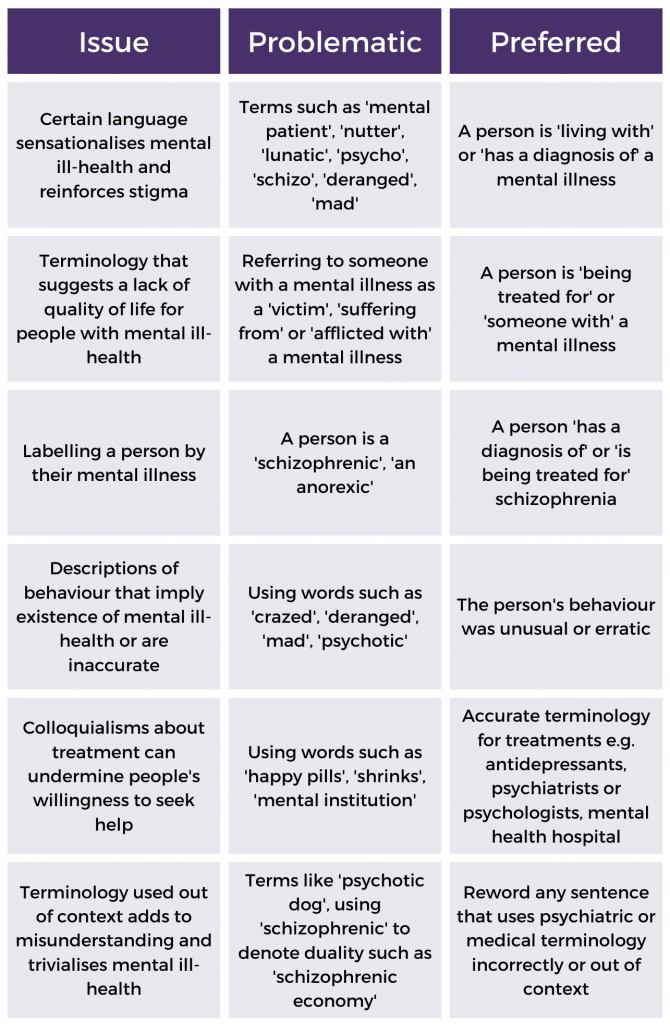
Communicating about suicide
Suicide remains a stigmatised and taboo subject in many communities. The language used when talking about suicide contributes to its stigmatisation, condemnation and, in some cases, glamourisation or glorification. Inaccurate or harmful language choices are often so ingrained in society that we may not realise the harm they can cause.
Talking about suicide requires the use of appropriate language, and it is a topic that should be approached in a respectful, compassionate way. When we are conscious of our language choices, we are doing more than preventing stigma or changing harmful conceptions about suicide. We are helping to remove those barriers that may inhibit people from seeking help and this can save lives.
Mindframe has developed the following language guide to help those who may be communicating about suicide avoid problematic language:
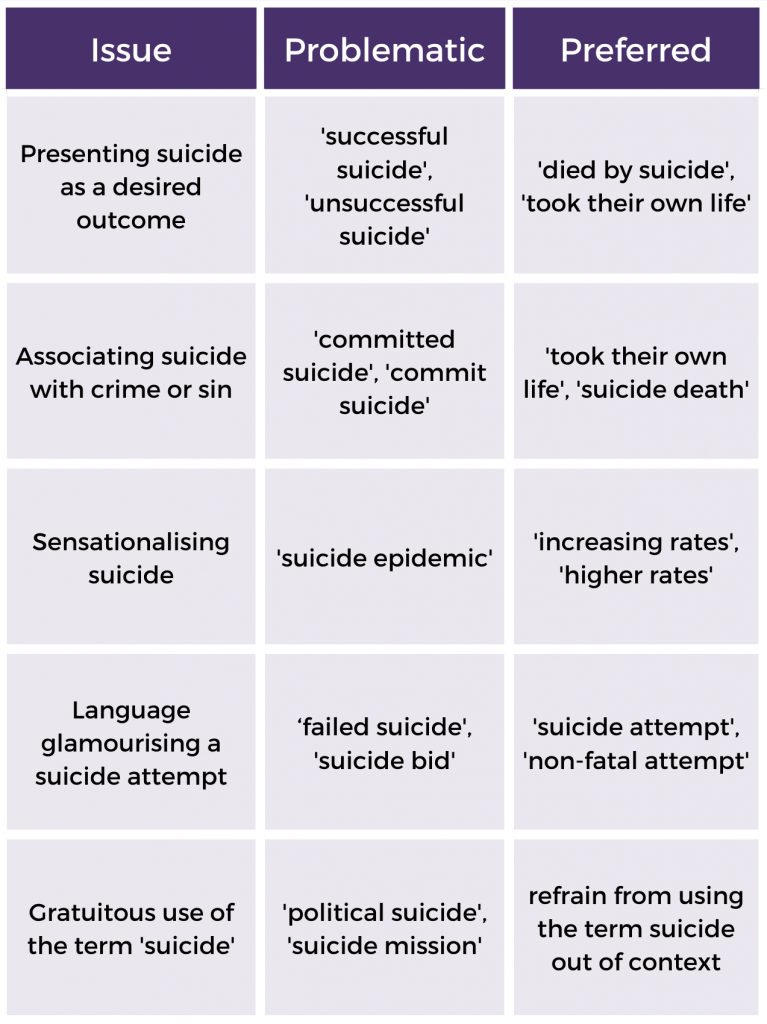
Other things to consider when we are approaching the topic of suicide:
- It is okay to be direct. Talking to someone about suicide will not cause or encourage suicide attempts, or increase suicidal thoughts. In fact, talking about suicide may give the person the opportunity to seek help, and can mean they feel less scared or isolated.
- Avoid using language that minimises or dismisses the person.
- Use language that is reassuring and hopeful.
Language is powerful
When we are mindful of the language we use to communicate about mental illness and suicide, we can actively help to reduce stigma and shift the conversation around mental ill-health. Often, inaccurate terminology is so common and widely used that it can take time to reconfigure our thinking. Remember, even if you slip up and find yourself using problematic language, see it as a learning experience – correct yourself, let those around you know why your language was harmful and help society be more aware.
